Vietnam is a country renowned for its diverse and rich culinary heritage. Among its many offerings, street food plays a crucial role, contributing to the unique allure of Vietnamese cuisine. For locals, street food is not just quick and convenient but also a symbol of cultural identity deeply rooted in daily life. For international visitors, Vietnamese street food offers a novel and unforgettable culinary experience. In this article, we'll explore some of the most iconic street foods and why they are so captivating.
.jpg)
1. Bánh Mì: The "King" of Street Foods
Bánh mì is considered a symbol of Vietnamese street food and has gained worldwide recognition. Although it originated from France, the Vietnamese bánh mì has undergone many adaptations to suit local tastes, becoming a unique and distinct dish. The Vietnamese bánh mì is crispy on the outside and filled with a harmonious combination of ingredients like pate, cold cuts, pickles, cilantro, and special sauces. Each region of Vietnam has its own variation, creating distinct flavors. For instance, bánh mì in Saigon tends to be rich and savory, while Hội An’s version leans towards a milder, slightly sweet flavor.
2. Phở: The Essence of Vietnamese Cuisine
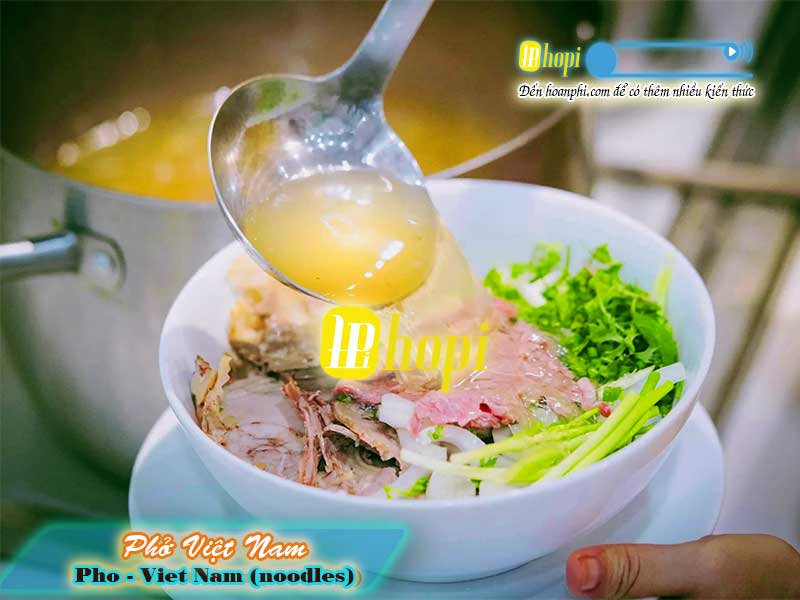
Phở is one of the most famous Vietnamese dishes, both at home and abroad. Made from simple ingredients like rice noodles, broth, beef or chicken, phở boasts a rich and complex flavor. The broth is simmered for hours with bones and spices like ginger, onion, star anise, and cinnamon, creating its distinctive taste. Phở can be served with fresh herbs, lime, chili, and fish sauce to enhance its flavor. Street phở is typically available from early morning until late at night, making it a popular choice for breakfast, lunch, or dinner.
3. Bún Chả: The Bold Flavors of Hanoi
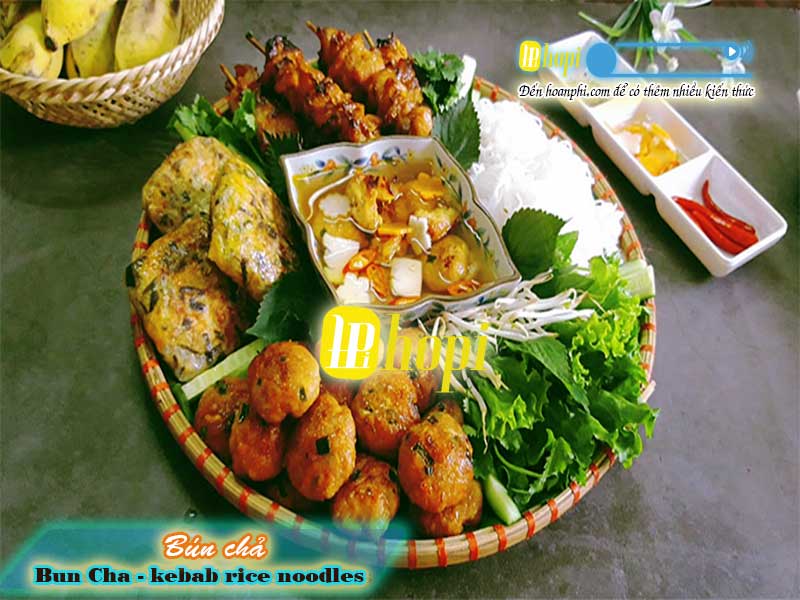
Bún chả is a specialty of Hanoi, famous for its bold flavors and unique preparation. The dish consists of fresh vermicelli noodles, grilled pork, and a tangy dipping sauce. The pork is marinated and grilled over charcoal until fragrant and golden brown. The dipping sauce, a crucial component of bún chả, is made from fish sauce, vinegar, sugar, garlic, chili, and lime, offering a perfect balance of sweet, sour, and salty flavors. Bún chả is typically served with fresh herbs like lettuce, perilla, and shredded green papaya. The combination of sweet grilled pork, tangy sauce, and fresh herbs creates an irresistible dish.
4. Gỏi Cuốn: A Light Yet Nutritious Dish
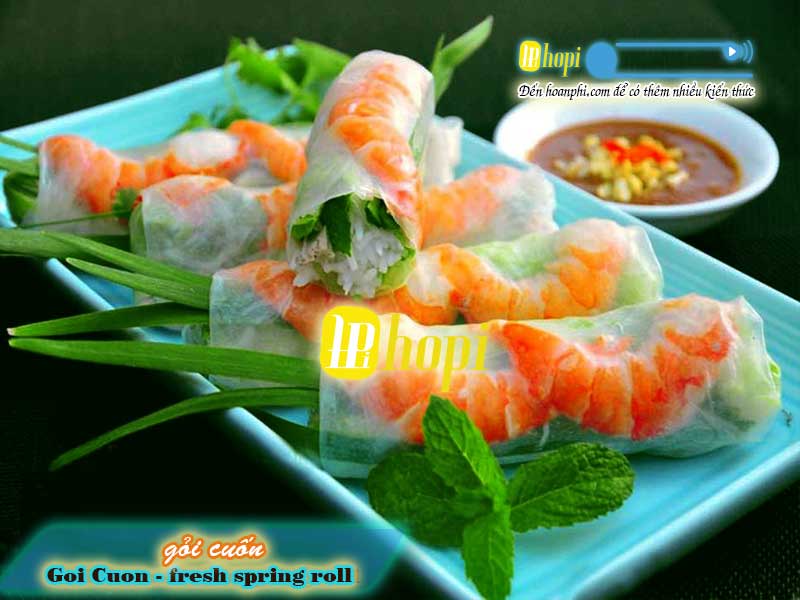
Gỏi cuốn, also known as fresh spring rolls, is a light yet highly nutritious dish. It consists of a thin rice paper wrapper filled with shrimp, pork, vermicelli, and fresh herbs like lettuce, basil, and mint. Gỏi cuốn is usually dipped in a sweet and sour fish sauce or peanut dipping sauce, offering a refreshing and easy-to-eat flavor. Gỏi cuốn is not only popular among locals but also a favorite of many foreign visitors, thanks to its fresh ingredients and nutritional benefits. This dish is ideal for those who want to enjoy Vietnamese cuisine without worrying about calories.
5. Bánh Xèo: A Colorful Taste of Central Vietnam
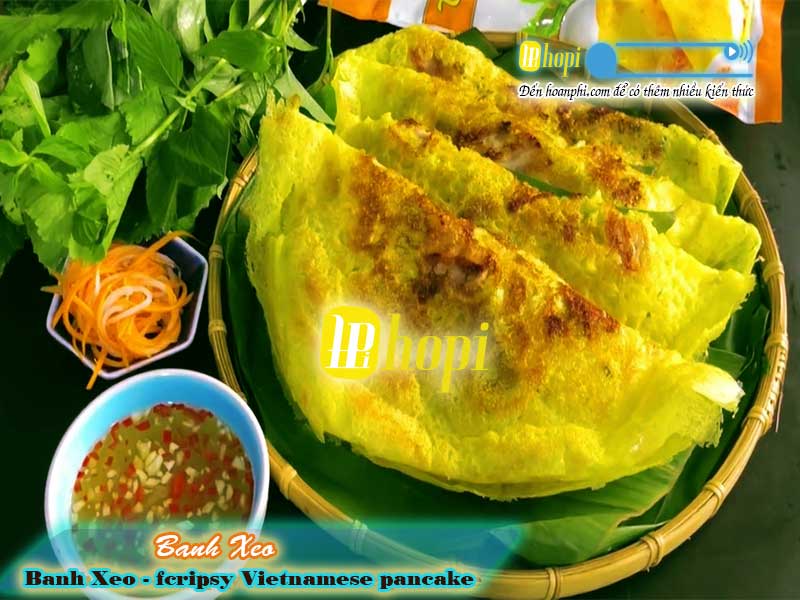
Bánh xèo is a popular street food in Central and Southern Vietnam. Made from rice flour, coconut milk, and turmeric, bánh xèo has a characteristic golden color. The filling usually includes shrimp, pork, bean sprouts, and green onions. Bánh xèo is typically served with fresh herbs and rice paper, dipped in a sweet and sour fish sauce. The crispy texture combined with the rich coconut milk and sweet filling creates a wonderful culinary experience. Each region has its own version of bánh xèo, from small and crispy in Central Vietnam to larger and softer in the South.
6. Xôi: A Simple Yet Flavorful Street Meal
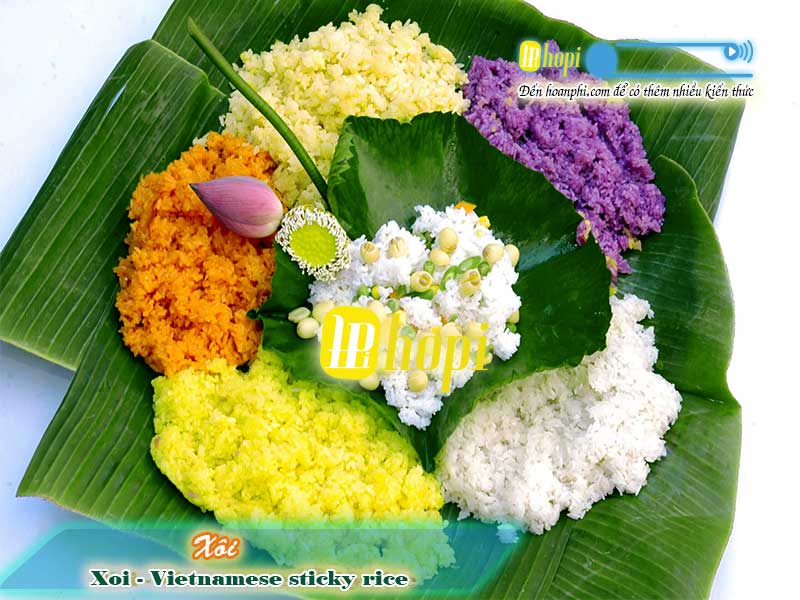
Xôi, or sticky rice, is a popular breakfast dish in Vietnam, made from glutinous rice and served with a variety of toppings such as meat, eggs, sausage, or peanuts. Xôi has a mildly sweet flavor from the glutinous rice, combined with various toppings, creating a simple yet satisfying street meal. Each region of Vietnam has its own signature xôi, such as xôi gấc (red sticky rice), xôi lạc (peanut sticky rice), xôi đậu xanh (mung bean sticky rice), or xôi ngũ sắc (five-color sticky rice). Xôi is not only street food but also a staple in Vietnamese cultural and festive events.
7. Bánh Tráng Trộn: A Popular Snack
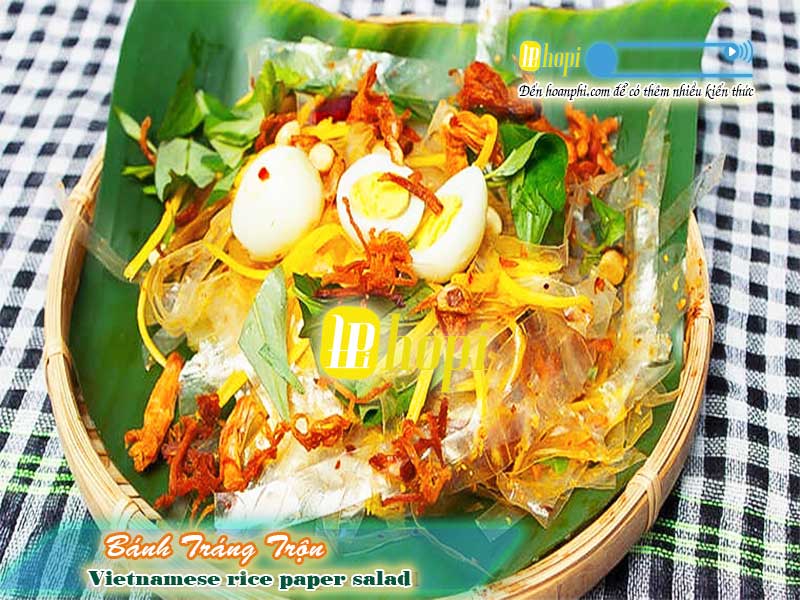
Bánh tráng trộn is a popular snack, especially in big cities like Saigon. It consists of thinly sliced rice paper mixed with ingredients like dried shrimp, shredded beef jerky, herbs, peanuts, and quail eggs. The mixture is seasoned with fish sauce, oil, and chili powder, creating a flavorful and spicy snack. Bánh tráng trộn is a favorite among young Vietnamese people, not only because of its flavor but also due to its versatility, as it can be easily customized with various ingredients according to personal taste.
8. Chè: Sweet Street Desserts
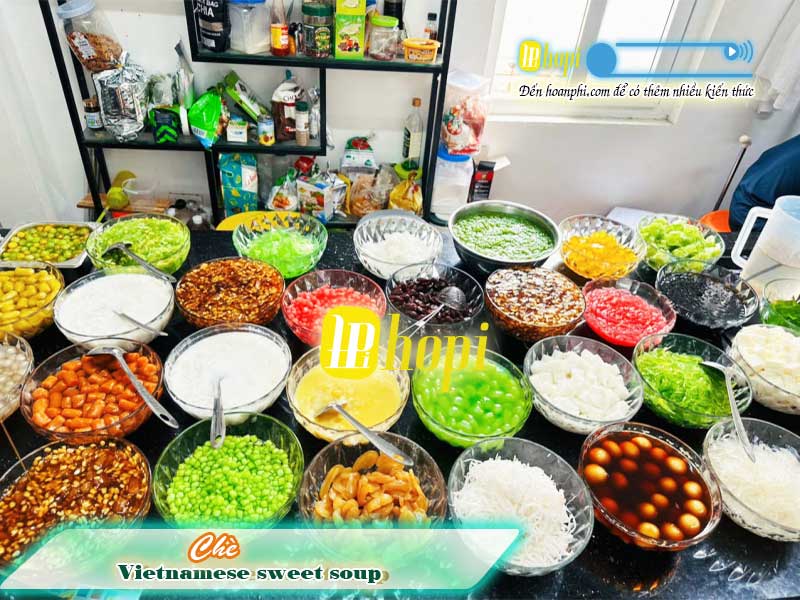
Chè is a popular dessert in Vietnam, found everywhere from street vendors to large chè shops. Vietnamese chè is incredibly diverse, ranging from mung bean chè, pomelo chè, mixed fruit chè, to a variety of other sweet concoctions. Each type of chè has its own unique flavor and preparation method, but all offer a sweet and refreshing treat. Chè is not only a dessert but also a significant part of Vietnamese culinary culture, often associated with childhood memories for many people.
9. Bánh Cuốn: A Classic Breakfast Dish
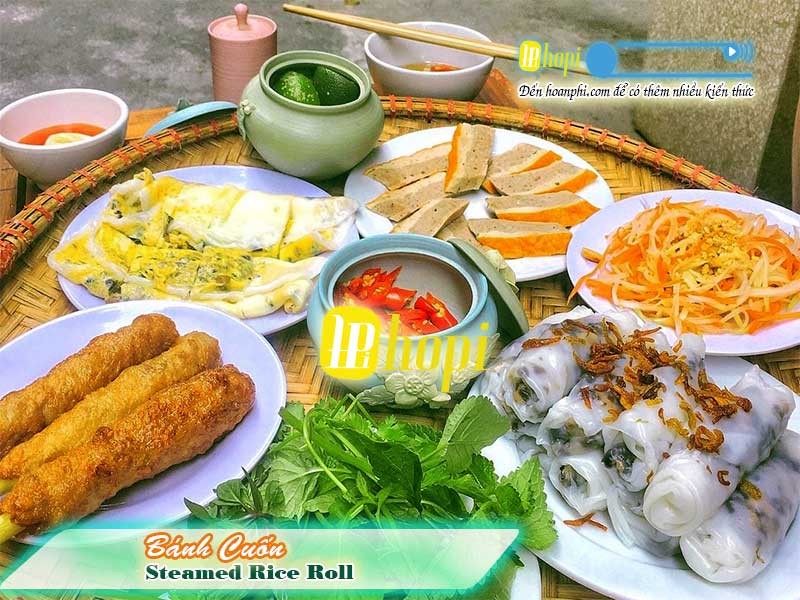
Bánh cuốn is a popular breakfast dish in Northern Vietnam, especially in Hanoi. Made from rice flour, the thin, steamed crepes are filled with a mixture of minced pork, wood ear mushrooms, and fried onions. Bánh cuốn is typically served with cinnamon pork sausage, fresh herbs, and a tangy fish sauce. The soft and silky texture of the crepe, combined with the savory filling and flavorful fish sauce, creates a perfectly balanced dish. Bánh cuốn is not only delicious but also an essential part of Northern Vietnam's street food culture.
10. Other Street Foods
Aside from the iconic dishes mentioned above, Vietnamese street food offers a wide variety of other delicious options. Dishes like hủ tiếu (Southern noodle soup), bún bò Huế (Hue beef noodle soup), mì Quảng (Quang-style noodles), nem lụi (grilled pork skewers), and bánh khọt (mini savory pancakes) are also noteworthy, showcasing the diversity and richness of Vietnamese cuisine. Each dish carries the cultural essence of its region, contributing to the vibrant street food scene in Vietnam.
Vietnamese street food is not just about quick and convenient meals; it is a symbol of a rich and diverse culinary culture. Each street food dish carries unique flavors, reflecting the creativity and culinary excellence of the Vietnamese people. Whether you are a local or an international visitor, Vietnamese street food leaves a lasting impression, connecting people through simple yet flavorful meals. Exploring street food not only helps you understand Vietnamese cuisine better but also allows you to immerse yourself in the everyday rhythm of this beautiful country.







.jpg)











Để lại bình luận
Bình luận & Phản hồi
Đang tải bình luận...